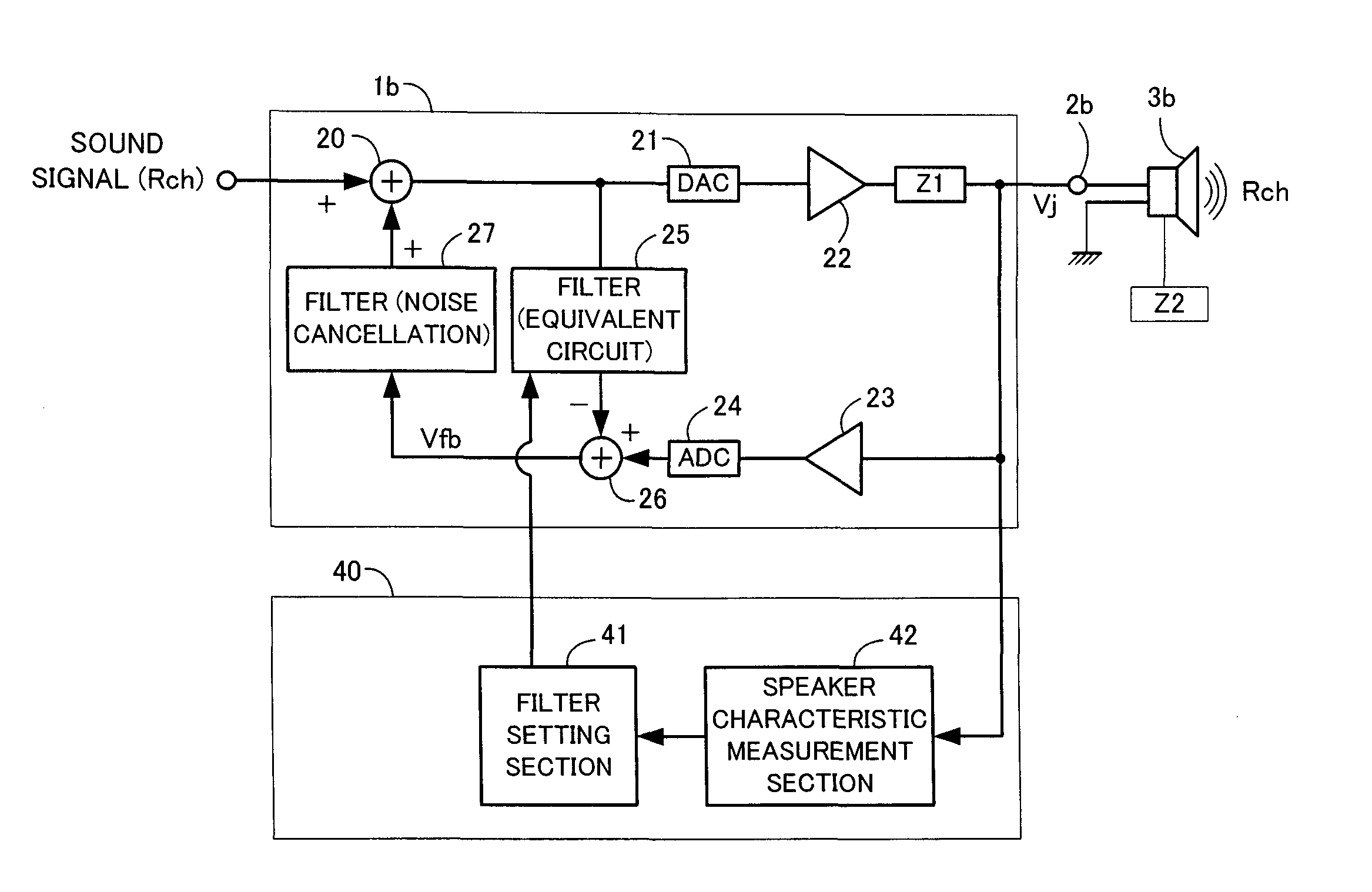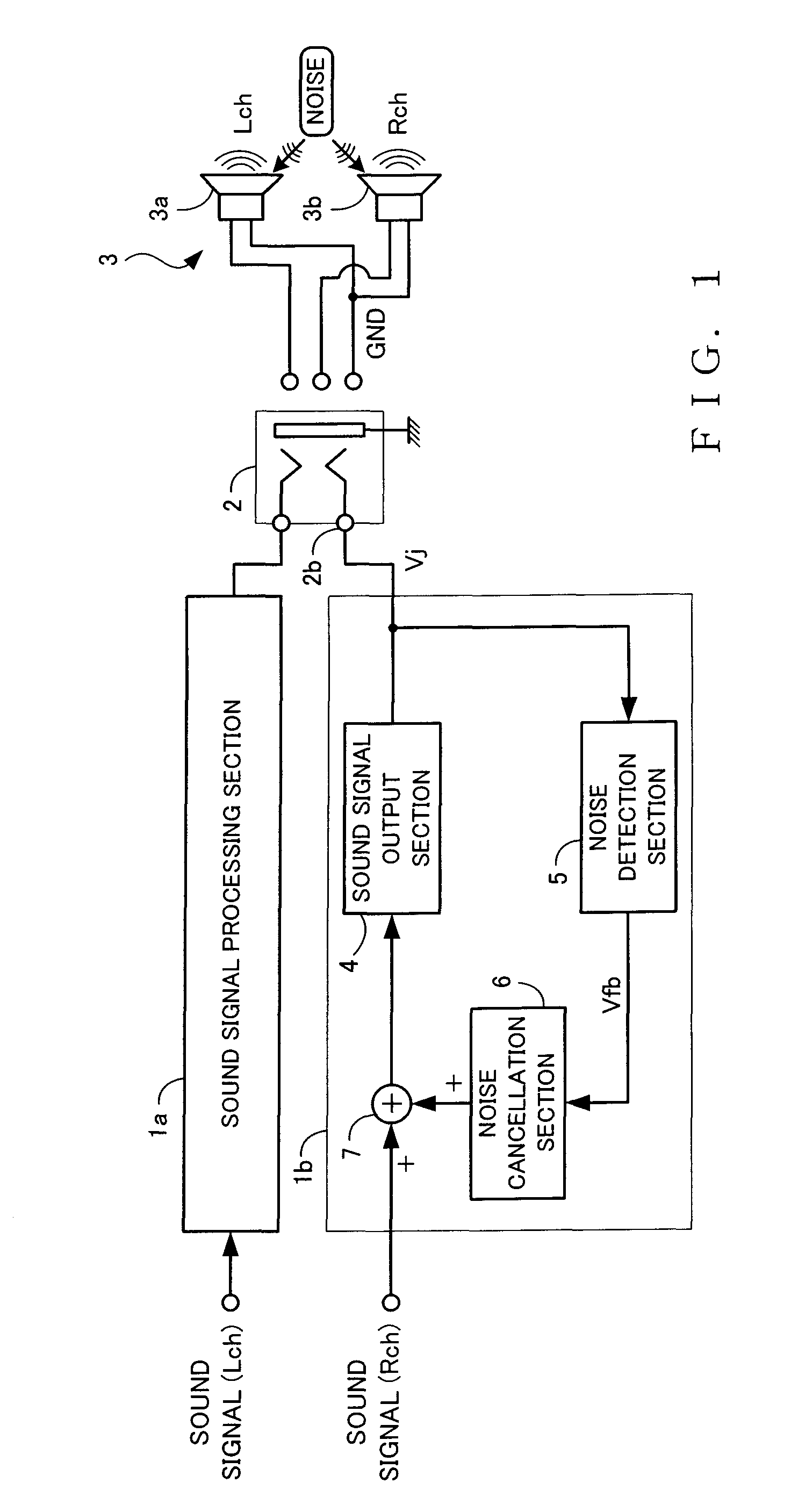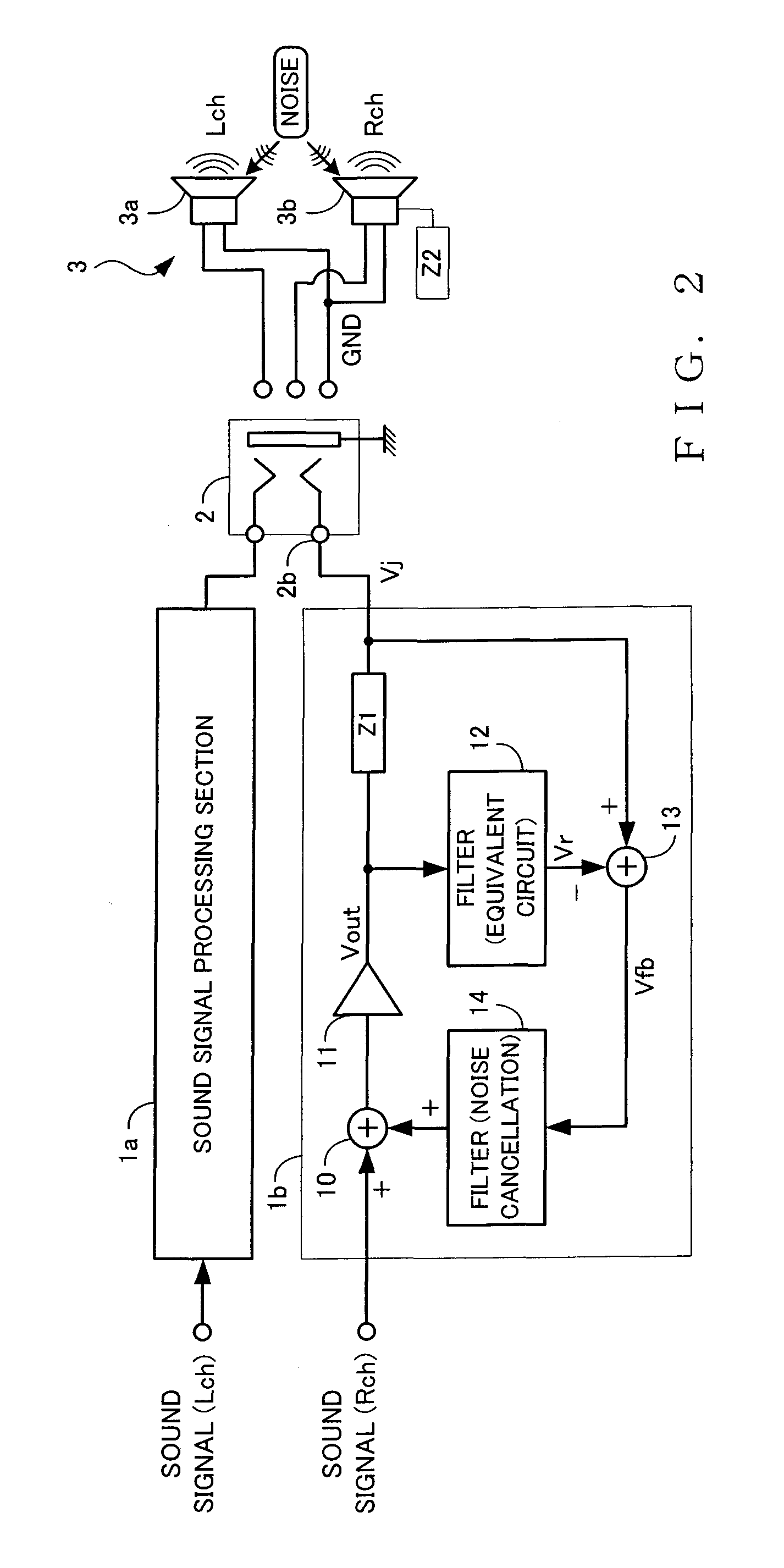Ambient noise removal device
a technology for removing devices and ambient noise, which is applied in the direction of active noise control, instruments, electrical transducers, etc., can solve the problems of increasing difficult to realize, and the noise signal detected by the microphone cannot be input to the audio apparatus, so as to reduce the size of the speaker casing, detect and remove ambient noise, and reduce the cost
- Summary
- Abstract
- Description
- Claims
- Application Information
AI Technical Summary
Benefits of technology
Problems solved by technology
Method used
Image
Examples
first embodiment
[First Embodiment of the Sound Signal Processing Section]
[0030]FIG. 2 is a block diagram showing the first embodiment of the sound signal processing section 1b. As shown, the sound signal processing section 1b includes adders 10 and 13, an amplifier 11, a predetermined output impedance Z1, and filters 12 and 14 each constructed of an analog circuit. In the sound signal processing section 1b of FIG. 2, a sound signal is input to and amplified by the amplifier 11. The sound signal Vout thus amplified by the amplifier 11 is output through the predetermined output impedance Z1 to thereby drive the speaker 3b.
[0031]A voltage Vj at the jack terminal 2b with no noise present around the speaker 3b takes a value corresponding to a voltage divided by the output impedance Z1 and a load impedance Z2 of the speaker 3b, which therefore can be expressed as
Vj=Vout*Z2 / (Z1+Z2)
[0032]The sound signal processing section 1b of FIG. 2 also includes the filter 12 that is an equivalent circuit of the speak...
third embodiment
[Third Embodiment of the Sound Signal Processing Section]
[0043]The following describe a third embodiment of the sound signal processing section 1b. In the above-described first and second embodiments, the equivalent circuit, including the equivalent impedance of the speaker 3b, comprises an analog filter. By contrast, the third embodiment is characterized in that the equivalent circuit, including the equivalent impedance of the speaker 3b, comprises a digital filter implemented, for example, by a DSP so that the circuit can be constructed more simply and implemented and mounted more easily than the one constructed of an analog filter.
[0044]FIG. 4 is a block diagram showing the third embodiment of the sound signal processing section 1b. As shown, the sound signal processing section 1b includes adders 20 and 26, a D / A converter 21, amplifiers 22 and 23, a predetermined output impedance Z1, an A / D converter 24, and digital filters 25 and 27. Each sound signal input to the sound signal ...
application example 1
[0066]FIG. 8 is a block diagram showing application example 1 applied to the sound signal processing section 1b. As shown, this sound signal processing section 1b is constructed for connection with the headphone 3 that includes, in a headphone casing 8 for attachment to an ear of the user, the speaker 3b and a microphone 9 for detecting ambient noise sound. Therefore, unlike in the above-described embodiments, a conventional three-terminal interface cannot be used as the interface 2 for connecting the headphone 3 to the audio apparatus.
[0067]Further, in the sound signal processing section 1b of FIG. 8, an adaptive filter (ADF) 51 generates a noise cancellation signal on the basis of a noise signal detected by the microphone 9. The adaptive filter 51 is a filter that self-adapts its transfer function to an optimal one by changing its characteristics. The adder 10 adds the noise cancellation signal, output from the adaptive filter 51, to the sound signal by the adder 10, to generate a...
PUM
 Login to View More
Login to View More Abstract
Description
Claims
Application Information
 Login to View More
Login to View More - R&D
- Intellectual Property
- Life Sciences
- Materials
- Tech Scout
- Unparalleled Data Quality
- Higher Quality Content
- 60% Fewer Hallucinations
Browse by: Latest US Patents, China's latest patents, Technical Efficacy Thesaurus, Application Domain, Technology Topic, Popular Technical Reports.
© 2025 PatSnap. All rights reserved.Legal|Privacy policy|Modern Slavery Act Transparency Statement|Sitemap|About US| Contact US: help@patsnap.com



